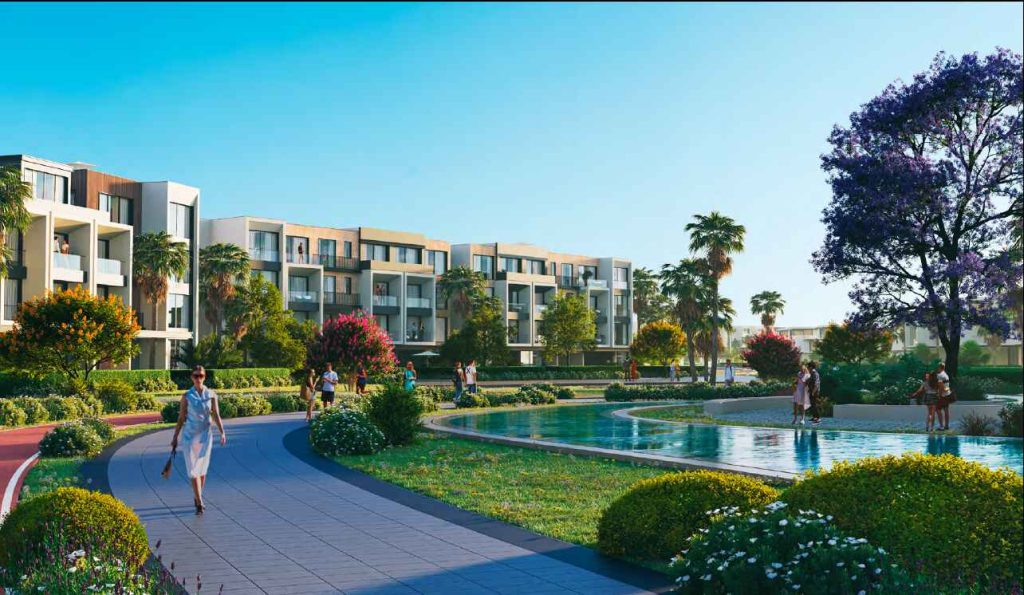Uganda, often called the Pearl of Africa due to its diverse ecosystems, natural beauty, and rich cultural heritage, has long been recognized as a stunning destination in East Africa. With its warm tropical climate, picturesque landscapes, abundant wildlife, and growing economy, Uganda is emerging as an attractive investment hub. Over recent years, foreign interest in Uganda’s real estate market has grown steadily. Whether you’re drawn to its scenic beauty, booming agricultural sector, or increasing urbanization, Uganda offers unique opportunities for foreign investors in property. But can foreigners buy property in Uganda? This comprehensive guide explores the legal framework surrounding property ownership for non-Ugandan citizens, reasons why foreigners should consider investing, and practical steps for purchasing property in this dynamic East African country.
Can Foreigners Buy Property in Uganda?

Yes, foreigners can buy property in Uganda, but with specific limitations. Foreign nationals cannot own land on a freehold basis, which is the most common form of land ownership in many countries. Instead, foreigners can only lease land for up to 99 years. The leasehold can be renewed, providing long-term security, but land ownership remains tied to the lease agreement rather than outright ownership. The lease agreement must be officially registered, providing the foreign buyer with legal security over the land or property for the specified duration.
Another option for foreigners is to acquire land through joint ventures with Ugandan citizens. In this arrangement, a foreigner partners with a local Ugandan, and the ownership shares may differ depending on the agreement between the parties involved. It’s important to ensure that agreements comply with Ugandan property laws to avoid future complications.
In addition to land leasehold agreements, foreigners can purchase buildings or existing property, such as residential or commercial buildings. However, these properties are often sold through a lease agreement, and their use must be by zoning laws and local government regulations.
Why Should Foreigners Consider Buying Property in Uganda?
Uganda’s real estate market offers a unique combination of factors that make it an attractive destination for foreign investors. Here are several reasons why foreigners should consider buying property in Uganda:
Affordable Property Prices
Compared to many other countries, Uganda offers relatively low property prices, which makes it an appealing destination for foreign buyers. Whether you’re looking for residential property in the heart of Kampala, a holiday home by Lake Victoria, or a commercial property in a growing town like Entebbe, Uganda, it offers diverse property types at competitive prices. The affordability of land and property makes Uganda a great option for international investors looking to diversify their portfolios without incurring substantial costs.
Growing Economy
Uganda’s economy has grown consistently over the last two decades. Key sectors such as agriculture, tourism, oil and gas, construction, and infrastructure development contribute to the country’s economic expansion. The demand for real estate, particularly residential and commercial spaces, is driven by the growing population, increasing urbanization, and the influx of international businesses and organizations. This makes Uganda an appealing location for long-term property investment.
As the Ugandan economy grows, so does the demand for modern housing, retail spaces, office buildings, and industrial properties. Foreign investors can exploit this demand by acquiring property in growing urban centers and rural areas where infrastructure and facilities are being developed.
Emerging Urban Centers and Infrastructure Development
Uganda is witnessing significant urbanization, particularly in cities like Kampala, Entebbe, and Jinja. These urban centers are experiencing rapid growth in population, commercial activity, and infrastructure development. This surge in development has led to an increased demand for residential, commercial, and industrial properties.
Kampala, the capital city, is a bustling metropolis with a growing middle class and an expanding real estate market. The city offers diverse investment opportunities, from luxury residential complexes to retail spaces and office buildings. Entebbe, known for being the location of Uganda’s international airport, also presents investment opportunities in the tourism and hospitality sectors.
In addition to the urban centers, Uganda invests heavily in its infrastructure, with projects to improve transportation, roads, electricity, and water systems. These developments are expected to further boost the demand for property in cities and rural areas in Uganda.
Tourism and Eco-Tourism Potential
Uganda is renowned for its natural beauty and biodiversity. It is home to numerous national parks and reserves, including Bwindi Impenetrable Forest, home to the endangered mountain gorillas, and Queen Elizabeth National Park, known for its wildlife. The country also has a rich cultural heritage that attracts international visitors. Uganda’s tourism sector is expected to continue growing as more people discover the country’s beauty.
Investing in property related to the tourism sector, such as eco-lodges, resorts, and vacation homes, can be a lucrative opportunity for foreigners. Many foreign investors are already capitalizing on Uganda’s potential in eco-tourism, as the government is actively promoting conservation and sustainable tourism. Investors can also benefit from Uganda’s increasing number of international flights, which makes the country more accessible to tourists from all over the world.
Strategic Location in East Africa
Uganda is strategically located in East Africa, sharing borders with Kenya, Tanzania, Rwanda, and the Democratic Republic of Congo. It is part of the East African Community (EAC), which provides access to a market of over 170 million people. Uganda’s location makes it an important trade and business hub for regional and international investments.
This strategic location offers opportunities for cross-border business ventures for property investors. Uganda’s connections to other East African nations make it an attractive choice for foreign companies looking to establish a presence there. Investing in property within Uganda can thus position you for future business opportunities throughout the EAC.
Stable Legal Framework and Property Laws
Uganda has significantly improved its legal and regulatory frameworks, including property laws. While foreign ownership of land is restricted, the legal systems that govern land tenure and leases provide a level of certainty for investors. Foreign investors can rely on the country’s property laws, including lease registration, tax obligations, and contract enforcement.
Uganda’s land registration system is centralized, and properties are registered with the Ministry of Lands, Housing, and Urban Development. This process provides a clear title to the property and helps protect investors from disputes or encumbrances. It is advisable to work with legal professionals in Uganda who specialize in property transactions to ensure all legal requirements are met.
Steps for Foreigners Buying Property in Uganda
The process generally follows a series of steps for foreigners looking to purchase property in Uganda. While it may seem complex, understanding the necessary procedures can help smooth the transaction.
Conduct Proper Research
Before committing to any real estate investment, conducting thorough research on the property market, locations, property values, and demand is essential. Engaging with local real estate agents and consultants knowledgeable about the market can help you make informed decisions.
Choosing a location that aligns with your investment goals is important, whether you are interested in residential property, agricultural land, or commercial real estate. Urban centers like Kampala are ideal for rental properties or business investments, while rural areas offer opportunities for agriculture-related ventures.
Understand the Land Tenure Systems
Uganda has four main land tenure systems: Freehold, Leasehold, Customary, and Mailo. Foreigners can purchase property under the leasehold system, which allows for long-term leases of up to 99 years. These leases can be renewed once they expire. However, foreign nationals cannot own land on a freehold basis, which is typically reserved for Ugandan citizens. Understanding the local land tenure systems is crucial when purchasing property.
Verify Ownership and Land Title
Verifying that the property you wish to purchase has a valid title is essential. Conducting due diligence to ensure the land is not subject to disputes, encumbrances, or legal claims is vital to avoid future conflicts. Engage a lawyer to verify the land title and ensure it’s properly registered with the Ministry of Lands, Housing, and Urban Development.
Draft and Sign Lease Agreements
If you purchase property through a leasehold agreement, you must draft and sign a lease agreement with the landowner. The lease terms, including the duration and payment arrangements, must be clearly stated in the contract. Working with legal professionals is advisable to ensure the lease is legally binding and by Ugandan law.
Pay Taxes and Fees
Property transactions in Uganda are subject to several fees, including stamp duty, registration fees, and taxes. Stamp duty is typically 1% of the property’s value, while registration fees depend on the property’s value and location. Be sure to budget for these additional costs when planning your investment.
Register the Property
Once the transaction is complete, the property must be registered with the Ministry of Lands, Housing, and Urban Development. This step formalizes your ownership or leasehold rights and protects your legal claim to the property.
Challenges and Considerations
While Uganda presents numerous opportunities for property investors, there are challenges to be aware of:
Limited Freehold Ownership
Foreigners are restricted from owning land on a freehold basis, which can limit their investment options. However, the leasehold system provides a viable alternative with long-term benefits. Foreigners must carefully consider the duration of the lease and ensure the terms align with their investment objectives.
Land Disputes
Land disputes are not uncommon in Uganda, especially in rural areas. These disputes can arise over inheritance, land boundaries, or ownership rights. Ensuring the land title is clear and conducting thorough due diligence before purchasing property can help mitigate this risk.
Infrastructure and Accessibility
While major urban centers in Uganda are well-developed, some rural areas may lack roads, electricity, and water supply infrastructure. This can make property development more expensive and logistically challenging. When investing in rural property, it’s important to assess the availability of essential services.
Conclusion
In conclusion, Uganda offers several attractive opportunities for foreign property investors. Its growing economy, affordable property prices, and legal framework that supports foreign ownership through leasehold agreements make it a desirable destination. Despite some challenges, such as land disputes and infrastructure limitations, the benefits of investing in Uganda’s real estate market outweigh the risks for many investors.










